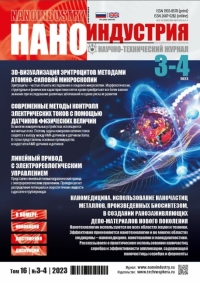CORROSION BEHAVIOR AND SURFACE ANALYSIS OF Ni-RICH TiNi ALLOY
In this article the corrosion behavior was considered and the surface analysis of Ti49.0Ni51.0 alloy samples in various structural (coarse-grained, ultrafine-grained, prepared by equal-channel angular pressing of a quenching sample, and ultrafine-grained after ECAP with preliminary aging) states in acid solutions – HCl and H2SO4. Studies have shown that corrosion damage in solutions of acids of various concentrations (1M, 3M) occurs most intensively in the coarse-grained state with an increased concentration of the acid solution. The formation of an ultrafine-grained structure reduces the corrosion rate; however, the ultrafine-grained state of the pre-aged alloy increases the corrosion rate compared to the unaged state in the sulfuric acid solution.
In this article the corrosion behavior was considered and the surface analysis of Ti49.0Ni51.0 alloy samples in various structural (coarse-grained, ultrafine-grained, prepared by equal-channel angular pressing of a quenching sample, and ultrafine-grained after ECAP with preliminary aging) states in acid solutions – HCl and H2SO4. Studies have shown that corrosion damage in solutions of acids of various concentrations (1M, 3M) occurs most intensively in the coarse-grained state with an increased concentration of the acid solution. The formation of an ultrafine-grained structure reduces the corrosion rate; however, the ultrafine-grained state of the pre-aged alloy increases the corrosion rate compared to the unaged state in the sulfuric acid solution.

 rus
rus


